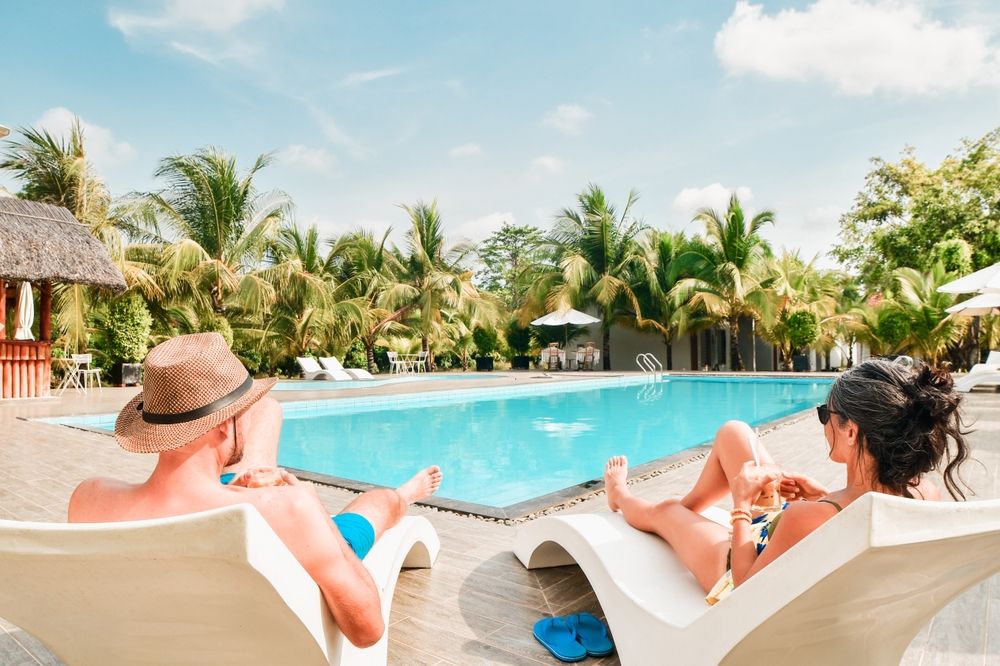All-inclusive resorts have gained popularity as a one-stop solution for vacationers seeking a hassle-free getaway. The appeal of having meals, drinks, activities, and sometimes even airfare bundled into one upfront price can be extremely appealing. But while all-inclusive resorts can simplify travel planning and potentially save money, they’re not always the best financial decision for every traveler. Knowing the key factors that determine when an all-inclusive resort will save you money and when it won’t is crucial to making sure you stick within your budget and travel goals.
All-Inclusive Resorts
All-inclusive resorts promise convenience and simplicity. With accommodations, meals, drinks, and entertainment rolled into one price, the concept appeals to travelers looking for a stress-free vacation. Many resorts offer additional amenities such as water sports, spa treatments, and excursions, sometimes included in the package or available at a discount. The variety and luxury offered can make it seem like you’re getting a great deal, but this can vary widely based on several factors.
When All-Inclusive Resorts Save You Money
Traveling with Family or Large Groups
For families or large groups, the per-person pricing model of all-inclusive resorts can offer substantial savings. Since children often receive discounted rates or can stay for free, families with kids can especially benefit. Additionally, coordinating meals and activities for a large group becomes easier and can mitigate the potential for overspending on individual preferences or needs.
Food and Beverage Lovers
If you’re a traveler who relishes in trying new cuisines extensively or enjoys cocktails by the pool, all-inclusive packages offer an excellent value. Given that food and beverages can quickly add up, having access to buffets, specialty restaurants, and unlimited drinks (alcoholic and non-alcoholic) without the worry of overspending is appealing. It also helps in budgeting as you won’t be surprised by large restaurant bills at the end of your stay.
Looking for a Laid-back Experience
If the goal of your vacation is to relax without venturing too far for entertainment or sightseeing, all-inclusive resorts allow you to indulge in a range of activities on-site. With everything from entertainment shows to water sports available, those who prefer staying in a single location will find the offering economical as it bundles numerous experiences into one price.
Destination and Duration
Certain destinations where the cost of dining and activities is typically high can make all-inclusive resorts a financially savvy choice. Caribbean islands like Jamaica, the Dominican Republic, and Mexico, where local prices might be inflated for tourist-class dining and services, offer more substantial savings through their all-inclusive packages. Additionally, sticking around for longer durations increases the value as the per-night costs become more favorable compared to à la carte expenses.
When All-Inclusive Resorts May Not Save You Money
Travelers Seeking Cultural Immersion
For those who view vacations as an opportunity to explore local culture, venturing out into local neighborhoods and dining at native restaurants is invaluable. All-inclusive resorts, with their self-contained environment, may not encourage you—or offer an incentive—to experience the destination’s culture fully. The cost of excursions outside the resort can get pricey, and you might end up paying for three meals a day at the resort you’re not consuming.
Budget-Conscious Travelers
If you consider yourself a budget traveler who prefers control over your expenses, all-inclusive resorts might not always offer the best value. For these travelers, enjoying local eateries, taking public transportation, or engaging in free or low-cost attractions can result in significant savings over the often higher upfront cost of an all-inclusive.
Special Requests or Preferences
Travelers with specific dietary restrictions, particular cuisines, or premium brand preferences might find a mismatch with standardized package offerings. Surcharges for premium dishes, drinks, or off-menu requests can accumulate, driving up overall costs beyond initial expectations. Thus, if you’re particularly selective, you might not get the most value for your money.
Unutilized Amenities
The appeal of inclusive experiences diminishes if you do not intend to take full advantage of all that’s offered. For example, if you’re not a drinker, the unlimited alcohol component becomes irrelevant. Similarly, if you are planning to do extensive sightseeing away from the resort, the appeal—and value—of inclusive meals and in-resort activities wanes.
Considerations for Choosing an All-Inclusive Resort
Deciding whether an all-inclusive resort is the right choice for your vacation involves careful consideration of several factors. Here’s what you should evaluate:
- Research the Amenities: Understand what the all-inclusive package truly entails. Ensure amenities and activities that appeal to you are included, rather than at an additional cost.
- Compare Package Costs: Research and compare the all-inclusive pricing versus paying separately for accommodation, meals, and activities. Make sure to account for hidden costs, including airport transfers or tips, which might not be included.
- Read Reviews and Ask Questions: Reading guest experiences through reviews can reveal whether the resort delivers on its promises and if hidden costs exist. Additionally, reaching out with specific questions can clarify uncertainties regarding what’s truly included.
- Consider Seasonality and Special Offers: Traveling off-peak or during promotional periods can unlock significant savings in cost per night. Many resorts offer package deals not widely advertised that can include additional perks.
- Evaluate Location and Accessibility: If you plan to explore beyond the resort, check its location relative to nearby attractions. Distance translates to increased travel costs—offsetting any savings from opting for an inclusive stay.
Alternatives to All-Inclusive Resorts
Some travelers might prefer alternatives that don’t restrain them to the confines of a single resort or restrict experiences.
Cruises
Cruises operate under a similar model, providing a degree of inclusiveness concerning meals and onboard activities. They also carry the bonus of visiting multiple destinations. However, like resorts, optional excursions and specialty dining may incur extra costs.
Vacation Rentals
Platforms like Airbnb and Vrbo offer vacation rentals that can suit those preferring cooking independently or intimate accommodations, particularly for longer stays or larger groups. While not inclusive, this option opens access to local culture and cheaper meal alternatives.
Combination of Boutique Hotels and Local Dining
Travelers who delight in discovering boutique hotels and eateries have the chance to immerse in an area authentically, often at reduced costs if researched well. This combination favors spontaneous schedules, progressive dining, and integrated cultural experiences.
Understanding the intrinsic dynamics of all-inclusive resorts ensures you make the best decision concerning your preferences and budget. By analyzing your travel style, what you value most in a vacation, and comprehensively tracking potential costs, you become empowered to choose a vacation option that offers the most enjoyment for your buck. Whether it’s sipping cocktails poolside or savoring street food miles away, a well-informed decision gratifies your wanderlust and your wallet.



